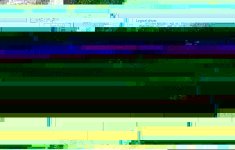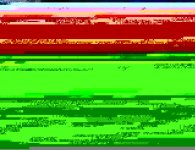So recently I was contacted by Elena at ReclaiMe data recovery software to try out their new Pro version. So here's what I found:
Right off I liked the feature that you can tell it what drives and drive types to scan before it goes and checks all the volumes on the system. This can be handy if you're multitasking and don't want to risk interrupting another process. You can also add in image files as well.

After that the devices are scanned for volumes
View attachment Picture 2.jpg
The next screen I wasn't as impressed with. Pretty basic physical/logical device selection which I wish had the logical volumes listed under their physical devices like you see in R-Studio. But all in all it's not bad.

The scan options I found has some great features. You can actually set the drive timeout during the scan (handy if you're a hack and don't clone first) Plus it supports all major filesystems.
View attachment Picture 4.jpg
For my test I used a clone of a drive with a badly damaged EXF4 fileystem. R-Studio and UFSExplorer were both able to piece together the bulk of the filesystem (just lost the names of most the root folders). So I thought it'd be a good comparison.
One feature that really impressed me was that the found folder structure populates as it's still scanning and you can actually browse through it to see what's been found. This can be very handy and save a lot of time as you can tell quickly if the desired root folder(s) have been found already.
For my test I paused it about 5 min in and to my surprise it had actually found a bit more data than either R-Studio or UFSExplorer (only a marginal amount, but still worth noting).
The following screen is the familiar folder tree with check boxes and a preview pane.
View attachment Picture 5.jpg

I really like how the preview pain is built right into the main window and it's very snappy (much faster than previewing in R-Studio)
The Hex Viewer/editor I found a bit un-impressive, but who in this business doesn't already have a dozen of those.
View attachment Picture 7.jpg
It also has the feature to find files based on name/extension and mark just those file types (might come in handy)
View attachment Picture 8.jpg
When it came time to actually copy the data, it seemed to go quite quickly. I like the fact that you can adjust the cache to help speed up the areas with tons of small files, or free up RAM if you're multitasking.
View attachment Picture 9.jpg
It also has features for imaging drives and RAID reconstruction that I haven't tried yet, but here's some screenshots courtesy of their webpage:



This entropy analysis looks like it might come in handy for determining stripe sizes.
I'm considering trying this one out just to see, though I must admit I have my doubts that it can clone anywhere near as well as ddrescue given that it relies on the Windows host controller. But still better than R-Studio (which crashes out and then deletes the entire image after hitting a few bad sectors).

All in all, it's one of the few newer data recovery programs I've actually been pretty impressed with. I still don't see any means to build in custom search algorithms or some of the other more advanced features that R-Studio has, but it's still a pretty good offering.
For me the biggest drawback I can see is the price:

At nearly 5x the price of an R-Studio Network License it's asking quite a bit given that it's still missing some features. Personally I feel the price should be dropped to more of the $150-$200 range. But in the meantime I'm gonna enjoy my free 60 day trial key they gave me.
Right off I liked the feature that you can tell it what drives and drive types to scan before it goes and checks all the volumes on the system. This can be handy if you're multitasking and don't want to risk interrupting another process. You can also add in image files as well.

After that the devices are scanned for volumes
View attachment Picture 2.jpg
The next screen I wasn't as impressed with. Pretty basic physical/logical device selection which I wish had the logical volumes listed under their physical devices like you see in R-Studio. But all in all it's not bad.

The scan options I found has some great features. You can actually set the drive timeout during the scan (handy if you're a hack and don't clone first) Plus it supports all major filesystems.
View attachment Picture 4.jpg
For my test I used a clone of a drive with a badly damaged EXF4 fileystem. R-Studio and UFSExplorer were both able to piece together the bulk of the filesystem (just lost the names of most the root folders). So I thought it'd be a good comparison.
One feature that really impressed me was that the found folder structure populates as it's still scanning and you can actually browse through it to see what's been found. This can be very handy and save a lot of time as you can tell quickly if the desired root folder(s) have been found already.
For my test I paused it about 5 min in and to my surprise it had actually found a bit more data than either R-Studio or UFSExplorer (only a marginal amount, but still worth noting).
The following screen is the familiar folder tree with check boxes and a preview pane.
View attachment Picture 5.jpg

I really like how the preview pain is built right into the main window and it's very snappy (much faster than previewing in R-Studio)
The Hex Viewer/editor I found a bit un-impressive, but who in this business doesn't already have a dozen of those.
View attachment Picture 7.jpg
It also has the feature to find files based on name/extension and mark just those file types (might come in handy)
View attachment Picture 8.jpg
When it came time to actually copy the data, it seemed to go quite quickly. I like the fact that you can adjust the cache to help speed up the areas with tons of small files, or free up RAM if you're multitasking.
View attachment Picture 9.jpg
It also has features for imaging drives and RAID reconstruction that I haven't tried yet, but here's some screenshots courtesy of their webpage:



This entropy analysis looks like it might come in handy for determining stripe sizes.
I'm considering trying this one out just to see, though I must admit I have my doubts that it can clone anywhere near as well as ddrescue given that it relies on the Windows host controller. But still better than R-Studio (which crashes out and then deletes the entire image after hitting a few bad sectors).

All in all, it's one of the few newer data recovery programs I've actually been pretty impressed with. I still don't see any means to build in custom search algorithms or some of the other more advanced features that R-Studio has, but it's still a pretty good offering.
For me the biggest drawback I can see is the price:

At nearly 5x the price of an R-Studio Network License it's asking quite a bit given that it's still missing some features. Personally I feel the price should be dropped to more of the $150-$200 range. But in the meantime I'm gonna enjoy my free 60 day trial key they gave me.
